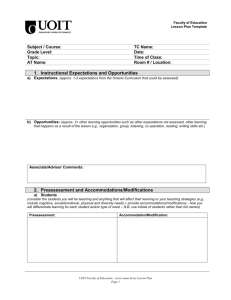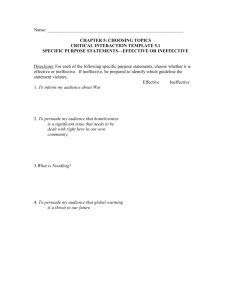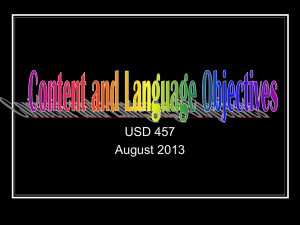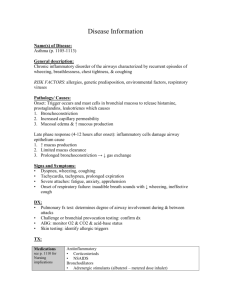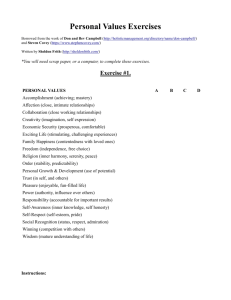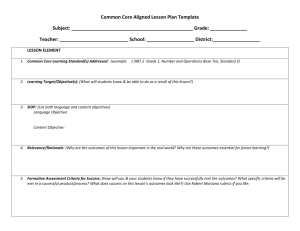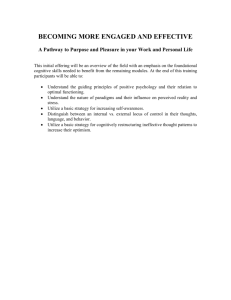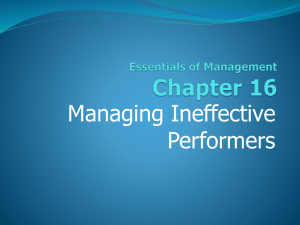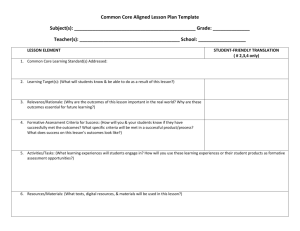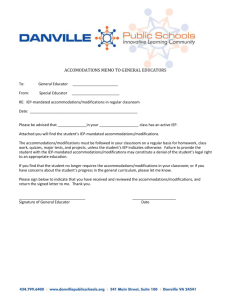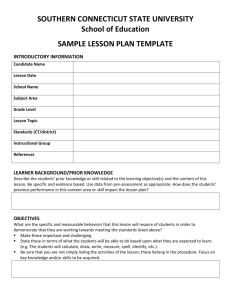Extensive Lesson Plan Template
advertisement
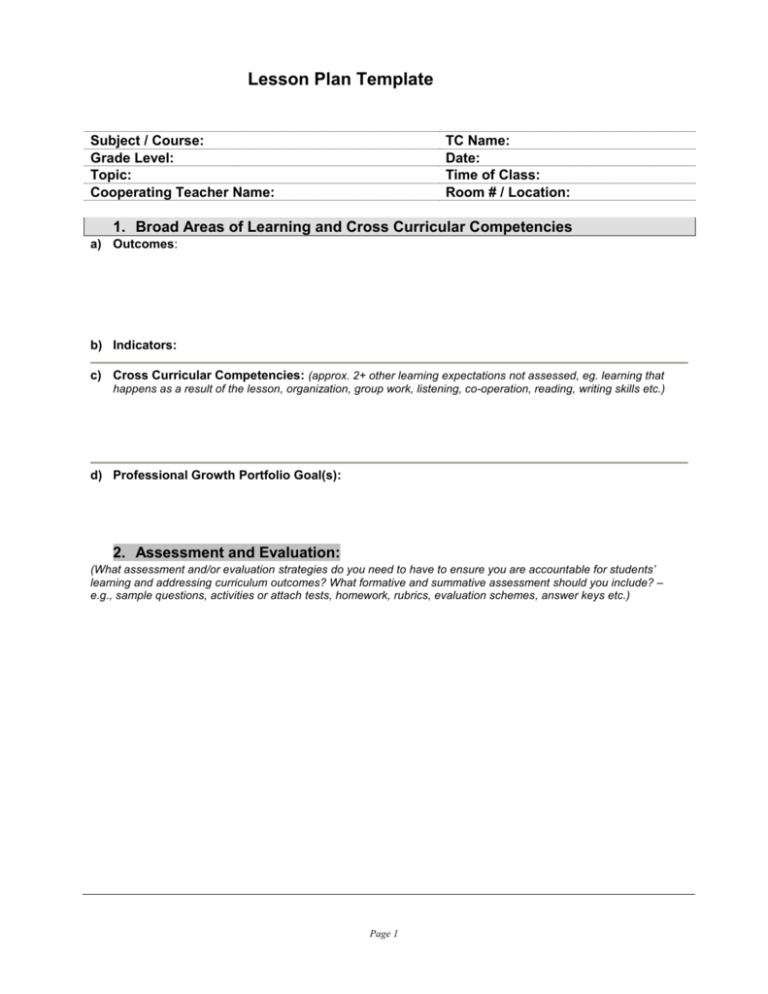
Lesson Plan Template Subject / Course: Grade Level: Topic: Cooperating Teacher Name: TC Name: Date: Time of Class: Room # / Location: 1. Broad Areas of Learning and Cross Curricular Competencies a) Outcomes: b) Indicators: c) Cross Curricular Competencies: (approx. 2+ other learning expectations not assessed, eg. learning that happens as a result of the lesson, organization, group work, listening, co-operation, reading, writing skills etc.) d) Professional Growth Portfolio Goal(s): 2. Assessment and Evaluation: (What assessment and/or evaluation strategies do you need to have to ensure you are accountable for students’ learning and addressing curriculum outcomes? What formative and summative assessment should you include? – e.g., sample questions, activities or attach tests, homework, rubrics, evaluation schemes, answer keys etc.) Page 1 3. Preassessment and Accommodations/Modifications a) Students (consider the students you will be teaching and anything that will affect their learning or your teaching strategies (e.g., include cognitive, social/emotional, physical and diversity needs,+ provide accommodations/modifications - how you will differentiate learning for each student and/or type of need – N.B. use initials of students rather than full names) Preassessment: Accommodation/Modification: b) Learning Environment: (describe the learning environment such as the set up/location of desks, where audio-visual equipment will be, where the teacher stands, where the students are working etc. – you may wish to include a map/layout of the classroom on a separate sheet and reference it with modifications if lesson changes) 4. Required Resources (list ALL resources required to conduct this lesson with detailed specifics such as textbook titles, chapters, page numbers, author/publishers, website URLs, resources like paper, pencils, protractors, chalk, rulers, paint, specimens, books, maps, videos, posters, lab materials, handouts – include name of handout and number of copies, etc.) 5. Content and Teaching Strategies of Lesson a) Overview/Agenda/Review (consider a quick overview of the lesson and/or list key elements in lesson which may be written on white/blackboard as an agenda for students and you to follow, you may also choose to consider a review of previous day’s work) b) Introduction (motivational start, minds-on, hook, etc.) (describe how you will motivate students, get their attention, relate the lesson to their lives, such as a minds-on activity, a hook or something that will pull learners into lesson) Page 2 c) Subject Content and Teaching Strategies (include the subject content - what you are teaching; detail the instructional strategies / teaching strategies for teaching the subject content - how you are teaching it; write some guiding questions - actual questions (variety of thinking levels) and suggested and anticipated answers; possibly include time approximations/timelines such as 10:00 – 10:30 a.m. or 25 minutes; and include application activities/components - how the content will be applied such as an activity, problems to solve, worksheets etc.). Page 3 d) Consolidation (indicate how you will review concepts taught, wrap up lesson, confirm students know what next tasks are e.g., having class to give you feedback on what was taught, review key application of concepts – this is important in terms of assessing the effectiveness of the lesson) 6. Reflections a) Effectiveness of Lesson What was effective / ineffective in your lesson? – include at least 3 lesson elements that were ineffective / effective? or What went well in your lesson? Or What did not go so well? Or What did the students enjoy? How did your planning or delivery turn out? Did your teaching / learning strategies work effectively or not for subject content and class? Consider the entire lesson and the reaction of students. How do you know? Provide evidence from student work, student questions asked and informal assessment. Think about examples of how the lesson progressed, engagement of students, flow of delivery, time management. Next steps? Indicate what steps you are going to take to continue to work on your three elements identified. What was effective / ineffective in your lesson? How do you know? Page 4 Next steps for improvement? b) Effectiveness as a Teacher What was effective / ineffective about you as a teacher? – include at least 3 teacher elements that you did that were effective or ineffective. Did you ask good questions? Did you motivate students? What did YOU do well? This would be a section describing your strengths and areas for improvement – volume, eye contact, body language, questioning skills, responding to questions, comfort with material, confidence, delivery, use of technology, vocabulary. How do you know? What evidence do you have that you, as a teacher, were or were not effective? Think about examples of what you said, did, reacted to, felt as examples of your three elements. Next steps? Indicate what steps you are going to take to continue to work on your three elements identified. What was effective / ineffective about you as a teacher? How do you know? Page 5 Next steps for improvement?
